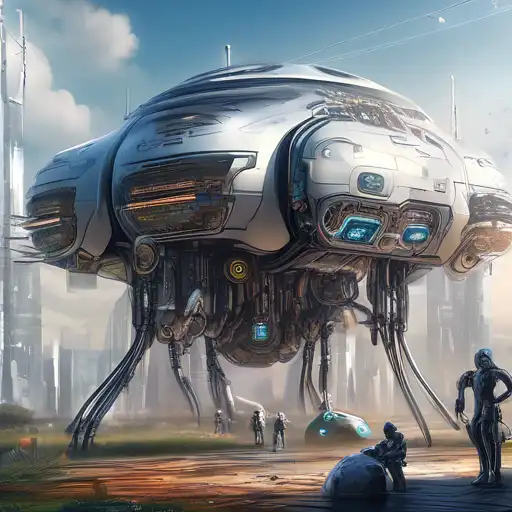Introduction to Artificial Intelligence's Evolution
Artificial Intelligence (AI) has transitioned from a futuristic concept to a cornerstone of modern technology. Today, we stand on the brink of a new era where AI's potential seems limitless. This article delves into the current state of AI, exploring its advancements, challenges, and what the future holds.
The Current State of AI
AI has made significant strides in recent years, with advancements in machine learning, natural language processing, and robotics. These technologies are not just theoretical but are being applied in real-world scenarios, from healthcare diagnostics to autonomous vehicles.
Machine Learning Breakthroughs
Machine learning, a subset of AI, has seen remarkable progress. Algorithms can now learn from data, identify patterns, and make decisions with minimal human intervention. This has opened up new possibilities in data analysis, predictive modeling, and beyond.
Natural Language Processing (NLP)
NLP has revolutionized how machines understand human language, enabling applications like chatbots and virtual assistants. This technology is constantly evolving, making interactions more natural and intuitive.
Challenges Facing AI Today
Despite its advancements, AI faces several challenges. Ethical concerns, data privacy issues, and the risk of job displacement are just a few of the hurdles that need to be addressed to ensure AI's beneficial integration into society.
Ethical Considerations
The development of AI raises important ethical questions. How do we ensure AI systems make fair decisions? The answer lies in creating transparent algorithms and establishing ethical guidelines for AI development.
Data Privacy
With AI's reliance on data, privacy concerns are paramount. Ensuring the security of personal information and complying with regulations like GDPR are critical for maintaining public trust in AI technologies.
The Future of AI
The future of AI is bright, with potential applications in every sector imaginable. From enhancing educational tools to revolutionizing healthcare, AI's impact will be profound. However, realizing this potential requires continued innovation, ethical consideration, and collaboration across disciplines.
AI in Healthcare
AI promises to transform healthcare by improving diagnostic accuracy, personalizing treatment plans, and streamlining administrative processes. The integration of AI could lead to better patient outcomes and more efficient healthcare systems.
AI and the Environment
AI can also play a pivotal role in addressing environmental challenges. From optimizing energy use to monitoring deforestation, AI technologies offer innovative solutions to some of the planet's most pressing issues.
Conclusion
As we explore the future of artificial intelligence today, it's clear that AI holds immense promise. However, navigating its challenges is essential for harnessing its full potential. By fostering ethical development and encouraging interdisciplinary collaboration, we can ensure AI serves as a force for good in the years to come.
